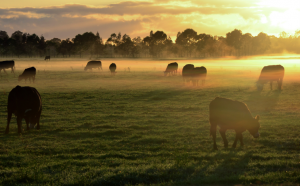
In the face of rising prices of food and energy, and the persistence of the climate crisis, the sustainability of food systems is an issue of increasing global attention. While meat production provides an essential source of nutrition, and an important source of income for farmers, its impact on climate change has been a subject of controversy. Thus, as part of the 30th annual session of the Specialized Section on Standardization of Meat, on 28-30 September 2022, UNECE held a seminar to discuss climate impacts of meat and livestock production, and innovative ways to mitigate emissions from the production cycle.
During the seminar, experts tackled the complex issue of the impacts of meat and livestock production on greenhouse gas emissions and assessed opportunities for mitigation. They discussed issues related to measuring the global warming potential of methane, and practical measures for reducing emissions. Some experts presented examples of how data-driven solutions can be used to identify sectors and farming techniques that can increase circularity and minimize environmental impact. This included showcasing a visual statistical tool for analyzing the use of biomass, and of a pilot project where remote sensing systems were used to map and analyze carbon sequestration on farms, which will serve to create a scientific baseline enabling more sustainable land management.
Other experiences that were discussed involved transformative innovations in agriculture, such as the production of a type of seaweed (Asparagopsis taxiformis) that can be mixed into feed to reduce methane emissions from cattle and sheep, reducing emissions by up to 98% in feedlot cattle. The positive effects of these new methods and discoveries can play a large role in increasing the sustainability of meat production.
Overall, the event illustrated that making meat and livestock production more sustainable and circular can bring sustainable outcomes without compromising productivity. The experts showed consensus on the importance of collaboration and of global sharing of ideas and progress to increase knowledge of the overall impact of meat and livestock production.

